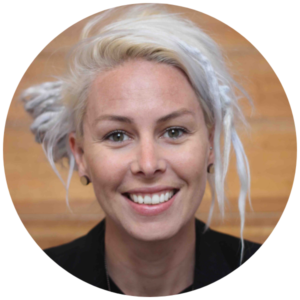
Reframing Assessment: Driving joy, discovery, and personal excellence in the classroom.
by Nicole Dyson, Founder & CEO, Future Anything
If this was a Friends episode, it would be The One With the Marking and Reporting. But, unlike the Halloween heist episodes from Brooklyn-Nine-Nine, it wouldn’t be an annual fun-filled episode of hilarious hijinks; it’s more Groundhog Day crossed with Survivor, soundtracked by Jaws.
The tight turnaround between assessment submission and reporting deadlines always made for a stressful and exhausting weekend. As a Queensland-based educator, I remember obsessively refreshing my OneSchool reporting progress, clinging to every small percentage climb in completion.
There was no joy in this process.
The implausibility of our teachers marking and reporting on 150+ pieces of assessment over a single weekend in any purposeful way is matched only by the impossible expectation that a 13-year-old can independently, concurrently, and meaningfully complete 5-8 separate assessment tasks as genuine reflections of their personal excellence.
And, as a passionate advocate for Project and Inquiry-Based Learning pedagogy, it’s important that I point out that it doesn’t matter how ‘authentic’, ‘real-world’ or ‘future-focussed’ the tasks themselves are, the panic and anxiety around back-to-back deadlines will nullify any of the benefits of these innovative opportunities as young people churn and burn under the weight of unrealistic expectations.
In my previous blog (What Makes Great Assessment?), I mentioned that we often ask students to leave themselves at the school gate. We ask them to walk into classrooms as empty vessels, compliant and quiet; ready to gratefully swallow the knowledge given to them. We often forget that the best assessment is un-Googleable. It invites young people to catalyze the content with their own voice and choice.
However, these opportunities to deep-dive and personalize the un-Googleable will only have the transformative learning outcomes that we want when we provide students with the space and time to be curious and explorative.
One of the most harrowing statistics that I’ve ever stumbled across was that the percentage of students that love school reduces from 95% in kindergarten to 37% in Year 9 (Jenkins, 2012).
Is it any wonder when competing deadlines pile up as young people advance through year levels; begetting stress, anxiety, and a panic-driven desire to just ‘get it done’?
Thus, for many, there is a prioritization of submission of everything over excellence in anything, in a bid to mitigate risk and avoid failure.
We need to reframe the conversation we’re having about assessment from workload to time load.
Workload is often easy to justify. If I have one task per subject, then on the surface it appears the workload is achievable.
However, if the relative time load per task (for an average student) is 6-8 hours, how is one supposed to complete all six tasks in the same two-week window to any degree of personal excellence?
The collective time load makes this workload impossible.
(Well, impossible without the by-products of stress, anxiety, and a reduced capacity to perform at one’s potential.)
Judy Willis in her article The Neuroscience of Joyful Education (2007) explains that “when students are engaged and motivated and feel minimal stress, information flows freely through the affective filter in the amygdala and they achieve higher levels of cognition, make connections, and experience “aha” moments. Such learning comes not from quiet classrooms and directed lectures, but from classrooms with an atmosphere of exuberant discovery.” (Kohn, 2004).
So, how can we create more joyful classrooms where young people experience exuberant discoveries through assessment, rather than in spite of it?
Firstly, we need to get real and transparent about the time loads that our young people are facing.
A great way to do this is to get students to use an application like Toggl to track the time that they spend on an assessment task. Then, ask students to submit their time tracking report with their assignment. From here, the data can be interrogated alongside academic achievement data to get a far more realistic picture of the time load attached to each task.
Many educators find when they do this that the real-life time load of a task can be 2-3 times the teacher’s estimation.
As an aside, these time tracking reports can be great foundations for feedback conversations around where students can improve.
Secondly, if we know the current assessment cycle doesn’t work for teachers or young people, we need to stop perpetuating the same system to the detriment of the health, wellbeing, and success of everyone involved.
One option for alleviating assessment loads is continuous assessment, such as portfolios.
These are most effectively implemented when:
- Each portfolio task is a checkpoint along the completion of a project, rather than the submission of abstract, unconnected quizzes, or exams.
- Each task is marked as it is submitted so that students can get real-time feedback on how they’re tracking, and what they need to do to ‘bump up’ their grades.
In this way, by the time the final task is submitted, most of the student’s work has already been marked, and they (and their caregivers) have a clear understanding of how they are tracking well in advance of any reporting being issued.
Finally, perhaps the most powerful enabler for assessment reform is a complete re-write of the whole-school assessment architecture of a school; with managing assessment time loads (not reporting timelines or term lengths) becoming the foundational value driving the design.
In this way, assessment calendars become instrumental in proactively managing teacher and student workload, rather than merely a cursory noticeboard for what is due and when.
In a time when over half of Australian teachers suffer from anxiety, and one in ten 4- to 17-year-olds experience a mental health problem each year, can we really afford to keep doing what we’re doing?
Want to know more about building the entrepreneurial mindsets of young people in your classroom?
Subscribe to Future Anything’s regular e-newsletter to have resources delivered right to your inbox. You can sign up here.
About the author: Nicole Dyson
As a teacher in the USA, UK and Australia as well as a Head of Department and Head of Year at some of Queensland’s top-performing public schools, Nicole has repeatedly led the design and implementation of whole-school changes to support future ready learning; placing young people at the forefront of co-designing contextually relevant learning experiences.

Nicole is an engaging and skilled facilitator, panellist and speaker who is a passionate advocate for equity, the future of education, and empowering young people to bend the future; one youth-led idea at a time.
Connect with Nic on LinkedIn here or Twitter here.





